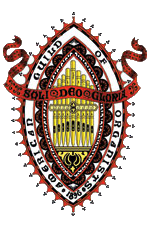Existential Challenge
Dear John,
Our church is moving more and more toward contemporary music and the belief that by doing so more people will be attracted to a church where the music is in a style they recognize and appreciate. We are a small congregation and have only seven in the choir - two men, the rest women. Most do not read music well but wish to volunteer nonetheless. We cannot afford to pay soloists or section leaders. What do you recommend? --Puzzled
Dear Puzzled,
Your question raises concern for many in our vocation. John Henschen’s article “The Tragic Decline of Music Literacy,” published in the August 16, 2018 issue of Intellectual Takeout, laments the alarmingly low percentage of people that can read music notation proficiently:
Two traditional sources for learning to read music are school programs and at home piano lessons. Public school music programs have been in decline since the 1980's, often with school administrations blaming budget cuts or needing to spend money on competing extracurricular programs. Prior to the 1980’s, it was common for homes to have a piano, with children taking piano lessons. Now stores dedicated to selling pianos are dwindling across the country as fewer people take up the instrument. In 1909, piano sales were at their peak when more than 364,500 were sold, but recent sales have plunged to between 30,000 and 40,000 annually in the US.
In the mid-1970's, most American high schools had a choir, orchestra, symphonic band, jazz band, and music appreciation classes. Many of today’s schools limit students to a music appreciation class because it is the cheapest option. The resulting implications for us, Directors of Sacred Music, are painfully obvious.
First I would recommend that you investigate collections of choral compositions such as New Anthem Book: 25 Unison, 2 and 3 Part Anthems, published by Kevin Mayhew; or possibly The New Oxford Easy Anthem Book, which contains “63 easy and accessible anthems – scored for SATB with the minimum of divisi, and using comfortable ranges.”
Second, immediately thereafter institute an active program of music education throughout your congregation. Alec Wyton, legendary former president of the AGO, proclaimed that the church musician must be a pastor, an educator, and a performer in that order of priority. At this critical moment in American church history, we are all called upon to recommit ourselves to music education, working together to replace that vital element of cultural heritage which is sadly missing in curricular offerings of so many schools. Organize classes in music literacy for children in Sunday School; organize classes in the history and practice of hymnody in adult education programs; create opportunities to introduce members of the congregation to the musical instruments of the church. Each of us is called to envision and to create opportunities in music education within our own congregations.
I invite readers to contribute suggestions for creative music education which you have employed successfully with your congregations. Let us each become part of the answer to this existential challenge!
John Walker

